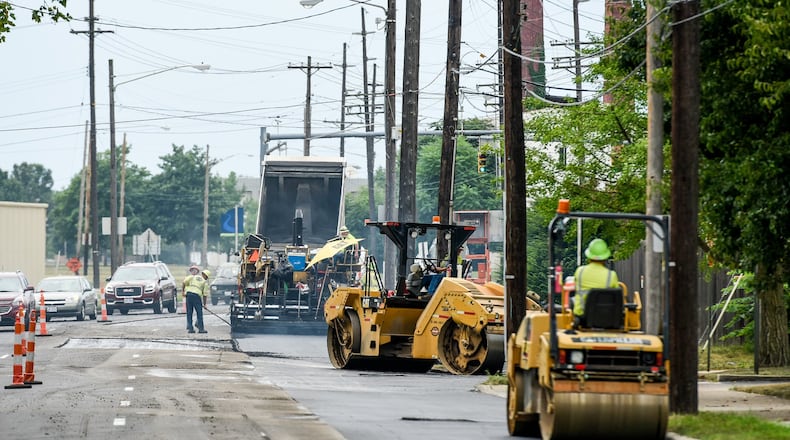Council requested legislation to place on the ballot a 10-year, 0.25% increase to the city’s current 1.75% income tax rate that would be dedicated for street and road paving. If approved, the increase would generate more than $3 million in additional paving revenues.
The city’s first income tax, 1.5%, was approved by Middletown voters in 1969. In 2007, voters approved a 0.25% income tax increase that was dedicated for public safety expenditures, raising the city’s income tax to 1.75%. That 0.25% increase was made permanent in 2012.
Middletown residents also receive 100% reciprocity for income tax paid to other jurisdictions where they work.
In the past 20 years, city councils have unsuccessfully attempted to raise the income tax that would have a percentage earmarked for streets. In 2018, Mayor Larry Mulligan proposed such an increase but did not have the support of council to place it on the ballot.
Also in 2018, the city’s Charter Review Commission considered a proposal to require a portion of the city’s income tax be allocated to street paving/repairs and capital improvements but did not recommend it to council to place on the ballot.
The city has more than 621 lane miles of roadway, and 59% are rated as being in excellent, good or fair condition, according the latest Pavement Condition Index last done in 2017. The remaining 41% are rated as being in poor, very poor or failed conditions, according to Scott Tadych, city public works and utilities director.
The city evaluates streets and roads biannually, and Tadych is hoping to pave another 126 lane miles over the next five years. If the income tax increase is approved, that could go up to 200 lane miles of paving over that time.
He said the cost per lane mile to pave streets is between $125,000 and $250,000, depending on the street’s condition.
This year, the city will be spending more than $4.2 million in paving. However, financial uncertainty because of the coronavirus could impact paving projects in 2021.
In addition to the income tax increase, the city could:
• Seek a street bond issue that would use these tax revenues as leverage for $15 million to $30 million and pay the bond off using the revenues from the income tax increase.
• Shift the costs of street lighting to residents, which would free up about $710,000 a year and does not need voter approval. Middletown is one of a few municipalities that do not charge property owners for that service. A few years ago, when that was proposed, there was strong opposition from residents. City officials said the costs, between $3.11 and $4 per month, could be added on the monthly city utility bills to its 19,000 utility customers or assessed by property frontages.
• Add another $5 local permissive tax when license plates are being renewed. This would raise an additional $240,000 per year and does not need voter approval. This was discussed in late 2019 and was on-track of being passed before council pulled from consideration in early February.
If an income tax increase from the current 1.75% city income tax is approved by voters, the city could pave 200 lane miles over the next five years, according to city officials.
About the Author
